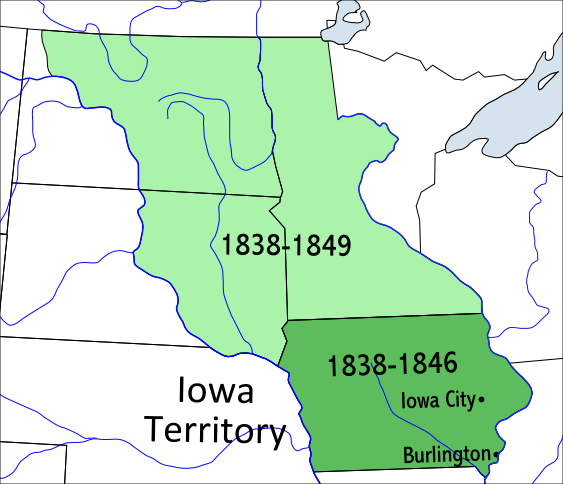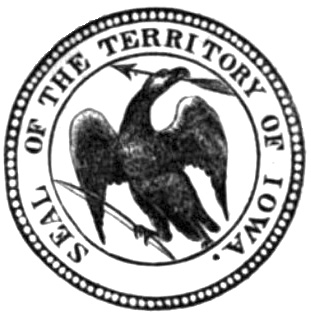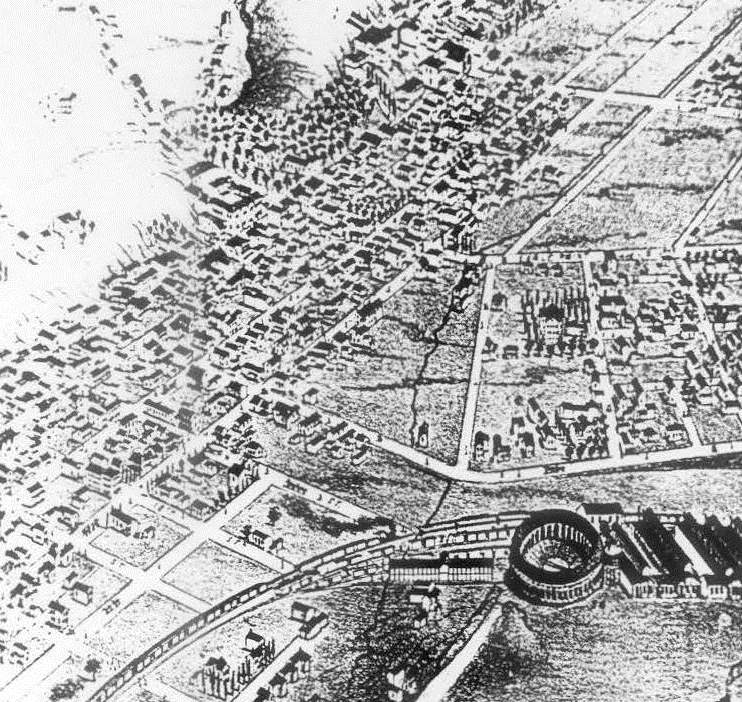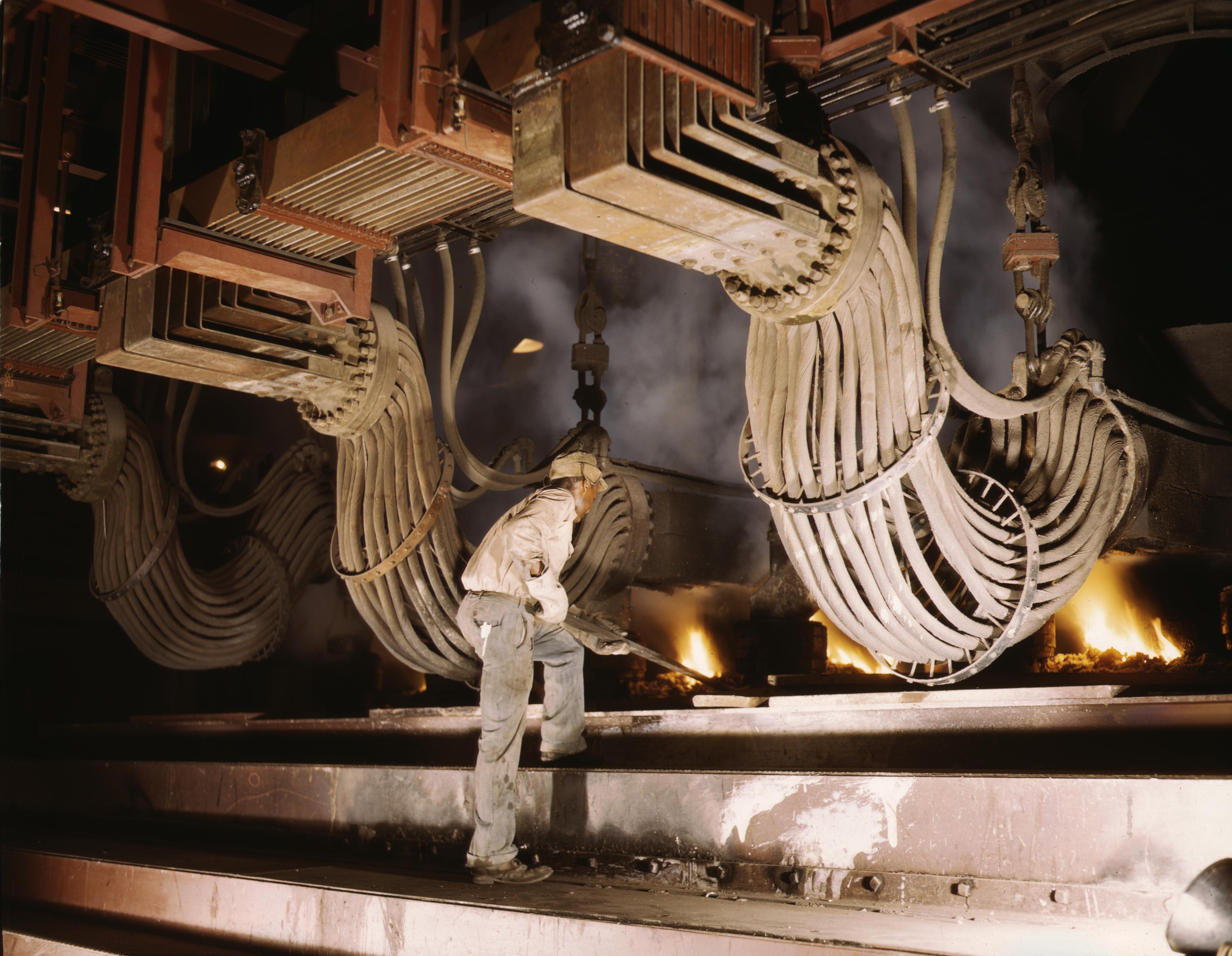|
Allen Hill (physician)
Allen Hill was an American physician from Dubuque County, Iowa, Dubuque County in the Iowa District of what was first the Michigan Territory, then the Wisconsin Territory, and eventually the Iowa Territory. He was elected to the 7th Michigan Territorial Council, last legislature of the old Michigan Territory to represent his district; but did not attend. Background Hill is recorded as settling with his family in the region around Dubuque, Iowa, Dubuque, at that time a primitive but booming mining and smelting settlement, in 1833, and was one of only two physicians in the region when a cholera epidemic swept through that summer. Public office In 1835, those parts of Michigan Territory who were not set to become part of the new State of Michigan were invited to elect members to a seventh and last Michigan Territorial Council. The citizens of Dubuque County (the north half of the Iowa District) in October elected Hill and John Parker (Iowa politician), John Parker, but due to con ... [...More Info...] [...Related Items...] OR: [Wikipedia] [Google] [Baidu] |
Dubuque County, Iowa
Dubuque County is a county located in the U.S. state of Iowa. As of the 2020 census, the population was 99,266, making it the eighth-most populous county in Iowa. The county seat is Dubuque. The county is named for Julien Dubuque, the first European settler of Iowa. Dubuque County comprises the Dubuque, IA Metropolitan Statistical Area. History Early history Dubuque County is named for French trader Julien Dubuque, the first European settler of Iowa, and an early lead mining pioneer in what is now Dubuque County. Dubuque was French Canadian, and had (by most accounts) a friendly relationship with the local Meskwaki people. He and other early pioneers established a lucrative mining and trading industry in the area. When lead deposits began becoming exhausted, the pioneers developed boat building, lumber yards, milling, brewing, and machinery manufacturing to take its place. The city of Dubuque was chartered in 1833 as the first city in Iowa. The establishment of the City of ... [...More Info...] [...Related Items...] OR: [Wikipedia] [Google] [Baidu] |
Iowa District
The Iowa District was a region of north-central North America west of the Mississippi River claimed by the United States. From June 28, 1834, to July 4, 1838, it was part of the Michigan Territory and, later, the Wisconsin Territory. It included not only the area which became the state of Iowa, but parts of what would become Minnesota, North Dakota and South Dakota. In September 1834, at an extra session of the Sixth Legislative Assembly of Michigan, the Iowa District was divided into two counties. A border was drawn due west from the lower end of Rock Island in the Mississippi River. The territory north of this line (which started just south of the present-day Davenport) was named Dubuque County, and all area to the south of the line was named Des Moines County. The Wisconsin Territory was trimmed back on July 4, 1838, and the entirety of the Iowa District became the new Iowa Territory The Territory of Iowa was an organized incorporated territory of the United States that ... [...More Info...] [...Related Items...] OR: [Wikipedia] [Google] [Baidu] |
Michigan Territory
The Territory of Michigan was an organized incorporated territory of the United States that existed from June 30, 1805, until January 26, 1837, when the final extent of the territory was admitted to the Union as the State of Michigan. Detroit was the territorial capital. History and government The earliest European explorers of Michigan saw it mostly as a place to control the fur trade. Small military forces, Jesuit missions to Native American tribes, and isolated settlements of trappers and traders accounted for most of the non-native inhabitants of what would become Michigan. Early government in Michigan After the arrival of Europeans, the area that became the Michigan Territory was first under French and then British control. The first Jesuit mission, in 1668 at Sault Saint Marie, led to the establishment of further outposts at St. Ignace (where a mission began work in 1671) and Detroit, first occupied in 1701 by the garrison of the former Fort de Buade under the leade ... [...More Info...] [...Related Items...] OR: [Wikipedia] [Google] [Baidu] |
Wisconsin Territory
The Territory of Wisconsin was an organized and incorporated territory of the United States that existed from July 3, 1836, until May 29, 1848, when an eastern portion of the territory was admitted to the Union as the State of Wisconsin. Belmont was initially chosen as the capital of the territory. In 1837, the territorial legislature met in Burlington, just north of the Skunk River on the Mississippi, which became part of the Iowa Territory in 1838. In that year, 1838, the territorial capital of Wisconsin was moved to Madison. Territorial area The Wisconsin Territory initially included all of the present-day states of Wisconsin, Minnesota, and Iowa, as well as part of the Dakotas east of the Missouri River. Much of the territory had originally been part of the Northwest Territory, which was ceded by Britain in 1783. The portion in what is now Iowa and the Dakotas was originally part of the Louisiana Purchase, though a small fraction was part of a parcel ceded by Great B ... [...More Info...] [...Related Items...] OR: [Wikipedia] [Google] [Baidu] |
Iowa Territory
The Territory of Iowa was an organized incorporated territory of the United States that existed from July 4, 1838, until December 28, 1846, when the southeastern portion of the territory was admitted to the Union as the state of Iowa. The remainder of the territory would have no organized territorial government until the Minnesota Territory was organized on March 3, 1849. History Most of the area in the territory was originally part of the Louisiana Purchase and was a part of the Missouri Territory. When Missouri became a state in 1821, this area (along with the Dakotas) effectively became unorganized territory. The area was closed to white settlers until the 1830s, after the Black Hawk War ended. It was attached to the Michigan Territory on June 28, 1834. At an extra session of the Sixth Legislative Assembly of Michigan held in September, 1834, the Iowa District was divided into two counties by running a line due west from the lower end of Rock Island in the Mississippi R ... [...More Info...] [...Related Items...] OR: [Wikipedia] [Google] [Baidu] |
7th Michigan Territorial Council
The Seventh Michigan Territorial Council, also known as the Rump Council, was a meeting of the legislative body governing Michigan Territory in January 1836, during the term of Acting Governor John S. Horner. At the time, most of Michigan Territory was awaiting admission to the union as the state of Michigan and had already seated its new state legislature. This was the final session of the Council and consisted only of members from the "contingent remainder" or "rump territory"—the remaining counties that formed the new Wisconsin Territory later that year. Background A constitutional convention in May 1835 drafted a new state constitution for the portion of Michigan Territory that makes up the modern state of Michigan. At the same election in which the constitution was ratified on October 5, 1835, voters elected the first members of the Michigan Legislature, which was set to take over legislative power from the territorial council. In order to ensure that the remainder ... [...More Info...] [...Related Items...] OR: [Wikipedia] [Google] [Baidu] |
Dubuque, Iowa
Dubuque (, ) is a city in Dubuque County, Iowa, United States, and its county seat. The population was 59,667 at the 2020 United States census. The city lies along the Mississippi River at the junction of Iowa, Illinois, and Wisconsin, a region locally known as the Tri-State Area. It serves as the main commercial, industrial, educational, and cultural center for the area. Geographically, it is part of the Driftless Area, a portion of North America that escaped all three phases of the Wisconsin Glaciation, resulting in a hilly topography unlike most of the Midwestern United States. Dubuque is a regional tourist destination featuring the city's unique architecture, casinos, and riverside location. It is home to five institutions of higher education. While Dubuque has historically been a center of manufacturing, the local economy also includes health care, publishing, and financial service sectors. History Spain gained control of the Louisiana Territory west of the Mississippi R ... [...More Info...] [...Related Items...] OR: [Wikipedia] [Google] [Baidu] |
Mining
Mining is the Resource extraction, extraction of valuable geological materials and minerals from the surface of the Earth. Mining is required to obtain most materials that cannot be grown through agriculture, agricultural processes, or feasibly created Chemical synthesis, artificially in a laboratory or factory. Ores recovered by mining include Metal#Extraction, metals, coal, oil shale, gemstones, limestone, chalk mining, chalk, dimension stone, rock salt, potash, gravel, and clay. The ore must be a rock or mineral that contains valuable constituent, can be extracted or mined and sold for profit. Mining in a wider sense includes extraction of any non-renewable resource such as petroleum, natural gas, or even fossil water, water. Modern mining processes involve prospecting for ore bodies, analysis of the profit potential of a proposed mine, extraction of the desired materials, and final mine reclamation, reclamation or restoration of the land after the mine is closed. Mining ma ... [...More Info...] [...Related Items...] OR: [Wikipedia] [Google] [Baidu] |
Smelting
Smelting is a process of applying heat and a chemical reducing agent to an ore to extract a desired base metal product. It is a form of extractive metallurgy that is used to obtain many metals such as iron-making, iron, copper extraction, copper, silver mining#Ore processing, silver, tin, lead smelting, lead and zinc smelting, zinc. Smelting uses heat and a chemical reducing agent to decompose the ore, driving off other elements as gases or slag and leaving the metal behind. The reducing agent is commonly a fossil-fuel source of carbon, such as carbon monoxide from incomplete combustion of coke (fuel), coke—or, in earlier times, of charcoal. The oxygen in the ore binds to carbon at high temperatures, as the Chemical energy, chemical potential energy of the bonds in carbon dioxide () is lower than that of the bonds in the ore. Sulfide ores such as those commonly used to obtain copper, zinc or lead, are roasting (metallurgy), roasted before smelting in order to convert the sulfid ... [...More Info...] [...Related Items...] OR: [Wikipedia] [Google] [Baidu] |
Cholera
Cholera () is an infection of the small intestine by some Strain (biology), strains of the Bacteria, bacterium ''Vibrio cholerae''. Symptoms may range from none, to mild, to severe. The classic symptom is large amounts of watery diarrhea lasting a few days. Vomiting and muscle cramps may also occur. Diarrhea can be so severe that it leads within hours to severe dehydration and electrolyte imbalance. This can in turn result in Enophthalmia, sunken eyes, cold or cyanotic skin, decreased skin elasticity, wrinkling of the hands and feet, and, in severe cases, death. Symptoms start two hours to five days after exposure. Cholera is caused by a number of Serotype, types of ''Vibrio cholerae'', with some types producing more severe disease than others. It is spread mostly by Waterborne diseases, unsafe water and Foodborne illness, unsafe food that has been contaminated with human feces containing the bacteria. Undercooked shellfish is a common source. Humans are the only known host fo ... [...More Info...] [...Related Items...] OR: [Wikipedia] [Google] [Baidu] |
John Parker (Iowa Politician)
John Parker was a local American politician in Dubuque County in the Iowa District of what was first the Michigan Territory, then the Wisconsin Territory, and eventually the Iowa Territory. He was elected to the last legislature of the old Michigan Territory to represent his district; but did not attend. Public affairs In 1835, those parts of Michigan Territory who were not set to become part of the new State of Michigan were invited to elect members to a seventh and last Michigan Territorial Council. The citizens of Dubuque County (the north half of the Iowa District) in October elected Parker and Dr. Allen Hill, but due to concerns about the irregularity of their election they did not attend what came to be called the "Rump Council" when it met (briefly) in January 1836. Parker would later publish a statement that his failure to appear "was very satisfactory, to those who elected me at the time", since a proclamation had apparently been issued moving up the meeting date to on ... [...More Info...] [...Related Items...] OR: [Wikipedia] [Google] [Baidu] |
Iowa News
Iowa ( ) is a U.S. state, state in the upper Midwestern United States, Midwestern region of the United States. It borders the Mississippi River to the east and the Missouri River and Big Sioux River to the west; Wisconsin to the northeast, Illinois to the east and southeast, Missouri to the south, Nebraska to the west, South Dakota to the northwest, and Minnesota to the north. Iowa is the List of U.S. states and territories by area, 26th largest in total area and the List of U.S. states and territories by population, 31st most populous of the List of states and territories of the United States, 50 U.S. states, with a population of 3.19 million. The state's List of capitals in the United States, capital, List of cities in Iowa, most populous city, and largest List of metropolitan statistical areas, metropolitan area fully located within the state is Des Moines, Iowa, Des Moines. A portion of the larger Omaha–Council Bluffs metropolitan area, Omaha, Nebraska, metropolitan area ... [...More Info...] [...Related Items...] OR: [Wikipedia] [Google] [Baidu] |






